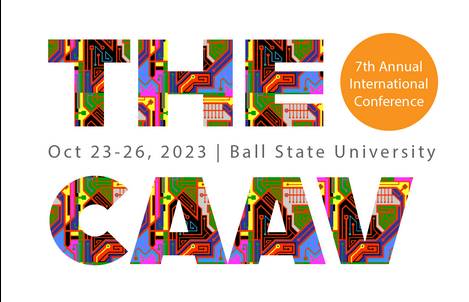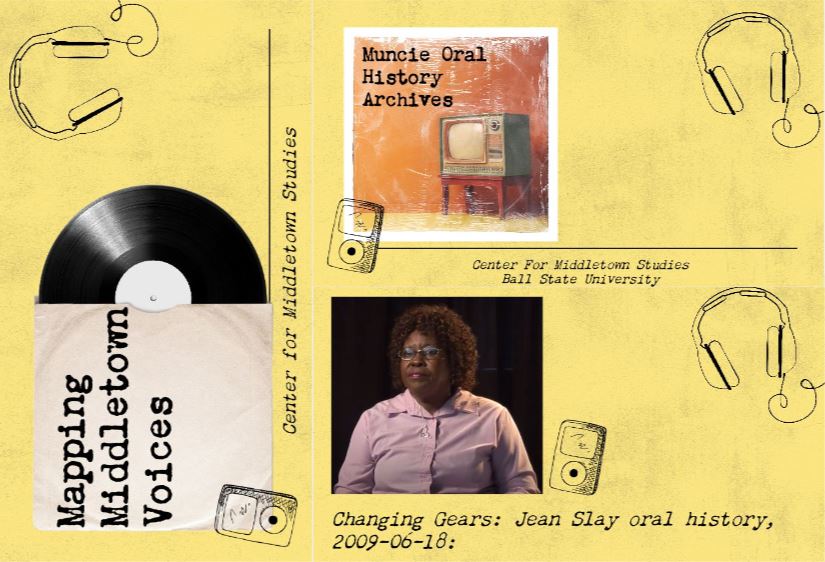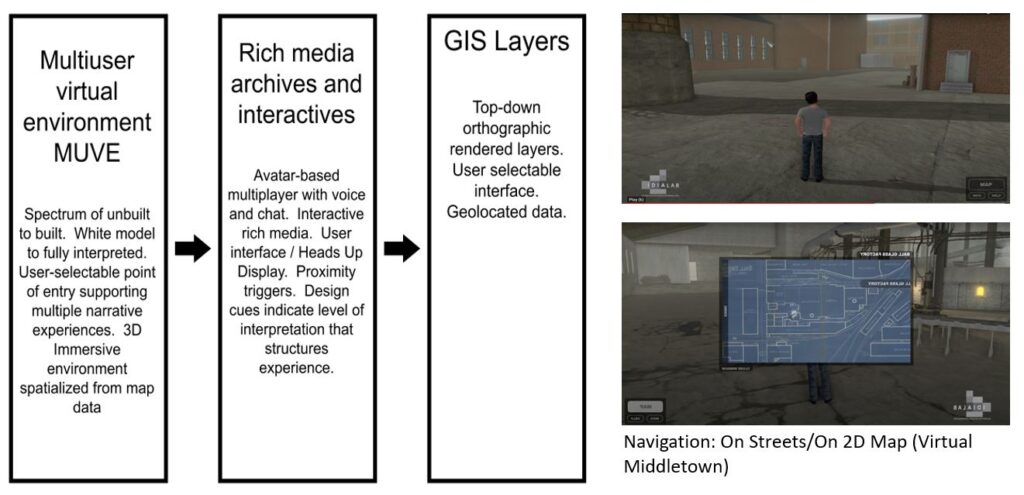UPDATES
Fall 2023| Conference Talk on Deep Mapping Middletown

Deep Mapping Middletown Co-Directors John Fillwalk and Jim Connolly presented “Deep Mapping Middletown: Designing Immersive Virtual Experiences for Spatialized Data” at the Seventh Annual CAAVCON Conference, Campus Alliance for Advanced Visualization, held in Muncie in October, 2023. The conference, hosted by the Institute for Digital Intermedia Art Lab, brought together scholars, designers, and developers working extended reality and data visualization. Fillwalk and Connolly’s presentation highlighted recent developments in the ongoing DMM project, including progress on the Unity-GIS interface, a core feature of DMM.

July 2023| Mapping Middletown Voices

Mapping Middletown Voices is one facet of Deep Mapping Middletown. Our project team is developing a mapping interface that enables users to explore in spatial terms the extensive archive of oral histories collected for Middletown research. We have identified more than 700 interviews containing qualitative spatial information—accounts of where people lived, worked and socialized, how they perceived particular places, and how spatial processes such as segregation worked. A map interface enhances access to the collection by giving users another pathway into the material, allowing them to frame new, spatially inflected questions and to detect geographic patterns of experience that are not easily discernable otherwise.
One reason for focusing on oral histories is their significance within the larger Middletown archive. The original work by the Lynds, as well as much of what followed, famously left out the experiences of racial, ethnic, and religious minorities. Over the past half century researchers have made considerable strides toward incorporating the experiences of underrepresented groups into scholarship focused on “Middletown,” particularly in response to pressures from Black civic leaders who recognize the power of the Middletown framing and have sought to make it more inclusive. A core method in this reparative work has been oral history, which has served as a means of documenting the experiences of marginalized groups during the periods covered by early Middletown investigations. Mapping Middletown Voices makes this work more visible and more analytically powerful.
We also expect this module of Deep Mapping Middletown to build upon and expand methods of extracting and representing spatial data from oral histories cartographically. We will create a Geographic Information System (GIS) interface that facilitates new ways of exploring and using these resources. GIS and humanities scholars have developed a range of approaches to mapping qualitative data, including data from oral histories, using both computational and manual processes. But researchers continue to wrestle with the challenge of linking often imprecise or contradictory evidence contained in interviews to known location data. We propose to develop an approach that will not only enhance the value of the Middletown archive but also have utility for institutions seeking to expand engagement with their oral history collections.

January 2023| Deep Mapping Middletown: User Experience

In November, 2022, Deep Mapping Middletown project directors Jim Connolly and John Fillwalk presented a preliminary plan to the ACM SIGSPATIAL International Workshop on Geospatial Humanities (GeoHumanities’22). You can find the paper, “Deep Mapping Middletown: Representing Ethnographic Data Spatially” at https://doi.org/10.1145/3557919.3565815.